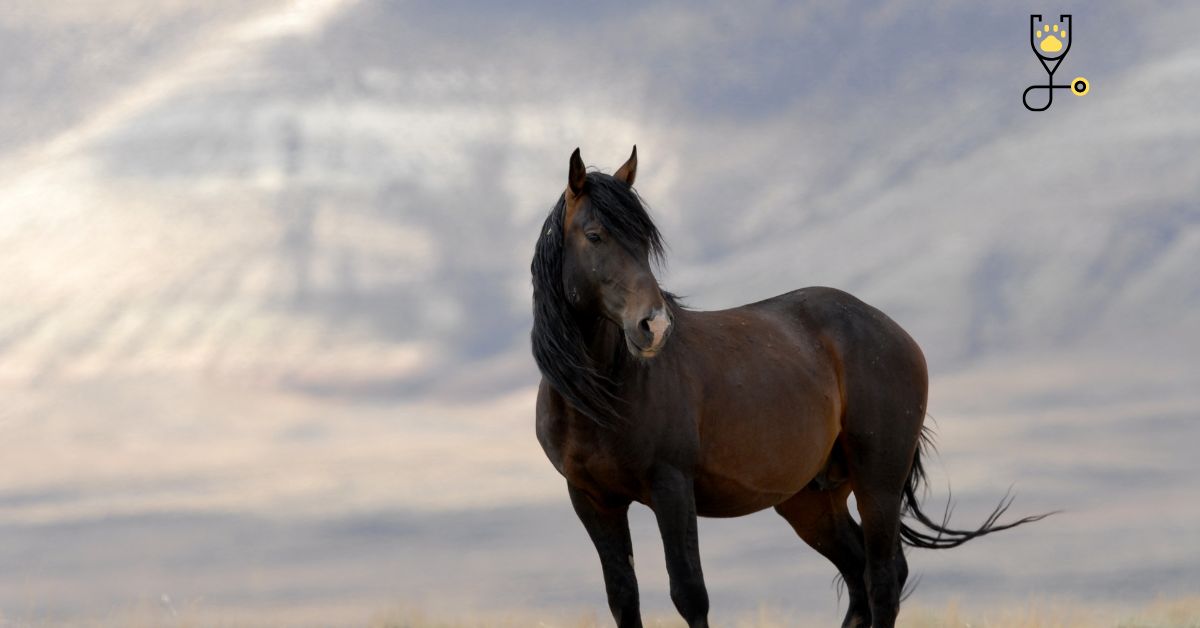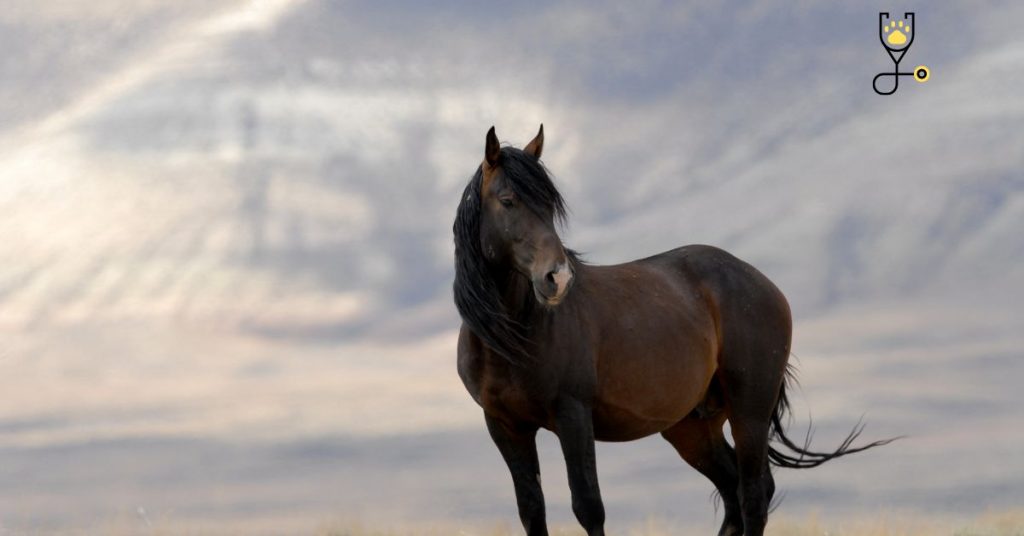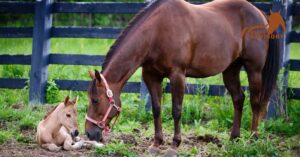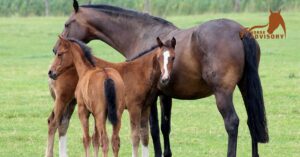Horses are grazing animals, so it’s important that they have access to hay or other forage at all times. Unfortunately, some horses develop a condition called hay belly, which is caused by an excessive intake of hay. In this blog post, we’ll discuss the symptoms, causes, treatment, and prevention of hay belly in horses. Keep reading to learn more!
What Is Hay Belly?
Hay belly is a condition that occurs when a horse ingests too much hay. This can lead to an enlargement of the abdomen, as well as excessive weight gain. Hay belly is also known as “hay belly syndrome” or “grazing-related obesity.”
Symptoms of Hay Belly in Horses
1. Excessive weight gain: One of the most obvious symptoms of a hay belly is an increase in body weight. This is due to the horse’s increased intake of hay (and, as a result, calories).
2. Enlarged abdomen: Another symptom of a hay belly is an enlargement of the abdomen. This is caused by excess weight gain and can make the horse appear “pot-bellied.”
3. lethargy: Horses with hay bellies may also seem more lethargic than usual. This is likely due to the fact that they are carrying around extra weight.
4. difficulty breathing: In severe cases, horses with hay bellies may have difficulty breathing due to the pressure on their lungs from the e, the amount of hay that a horse eats is also a major factor.
5. pastures that are too rich in nutrients: Another possible cause of a hay belly is grazing on pastures that are too rich in nutrients. This can lead to the horse consuming more calories than it needs, which can lead to weight gain.
6. lack of exercise: A lack of exercise is another possible cause of hay belly. If a horse isn’t getting enough exercise, it may start to gain weight.
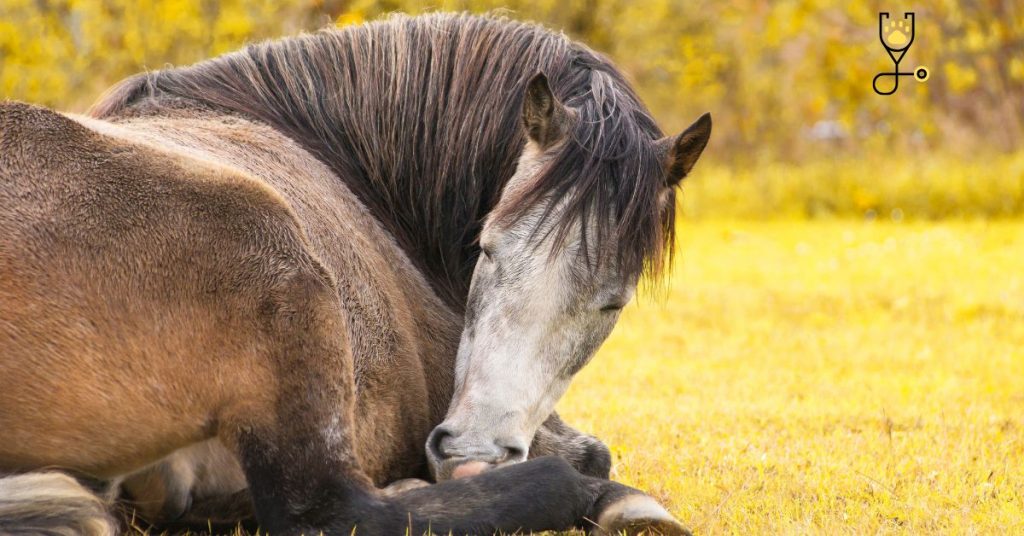
Causes Of Hay Belly
There are several possible causes of hay belly in horses. The most common cause is an excessive intake of hay. This can be due to a number of factors, including:
1. The type of hay that the horse is eating: Some types of hay, such as alfalfa, are higher in calories than others. If a horse is eating a lot of high-calorie hay, it may start to gain weight.
2. The amount of hay that the horse is eating: The amount of hay that a horse eats is also a major factor. If a horse is eating more hay than it needs, it may start to gain weight.
3. Pastures that are too rich in nutrients: Another possible cause of a hay belly is grazing on pastures that are too rich in nutrients. This can lead to the horse consuming more calories than it needs, which can lead to weight gain.
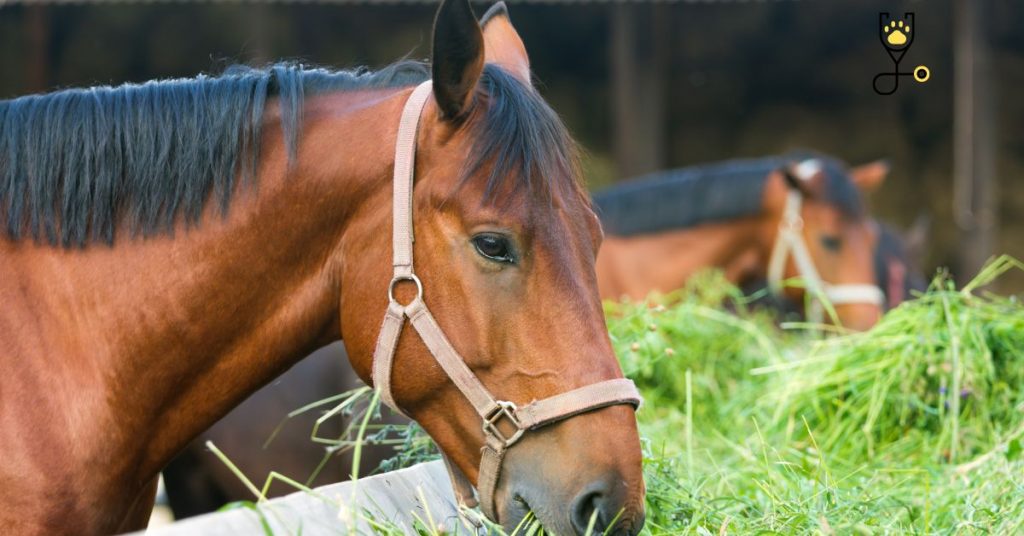
4. Lack of exercise: A lack of exercise is another possible cause of hay belly. If a horse isn’t getting enough exercise, it may start to gain weight.
Treatment for Hay Belly
If your horse has a hay belly, there are several things that you can do to help treat the condition. The most important thing is to reduce the amount of hay that your horse is eating. This may mean feeding your horse less hay or switching to a lower-calorie type of hay. You should also make sure that your horse is getting enough exercise. If your horse is overweight, you may need to work with a veterinarian or equine nutritionist to develop a weight-loss plan.
Preventions of Hay Belly in horses
- Reduce the amount of hay that your horse is eating.
- Switch to a lower-calorie type of hay.
- Make sure that your horse is getting enough exercise.
- If your horse is overweight, you may need to work with a veterinarian or equine nutritionist to develop a weight
- loss plan.
- Hay belly is a condition that can be prevented by following these tips. If you think that your horse may have a hay belly, please contact your veterinarian for further evaluation and treatment.
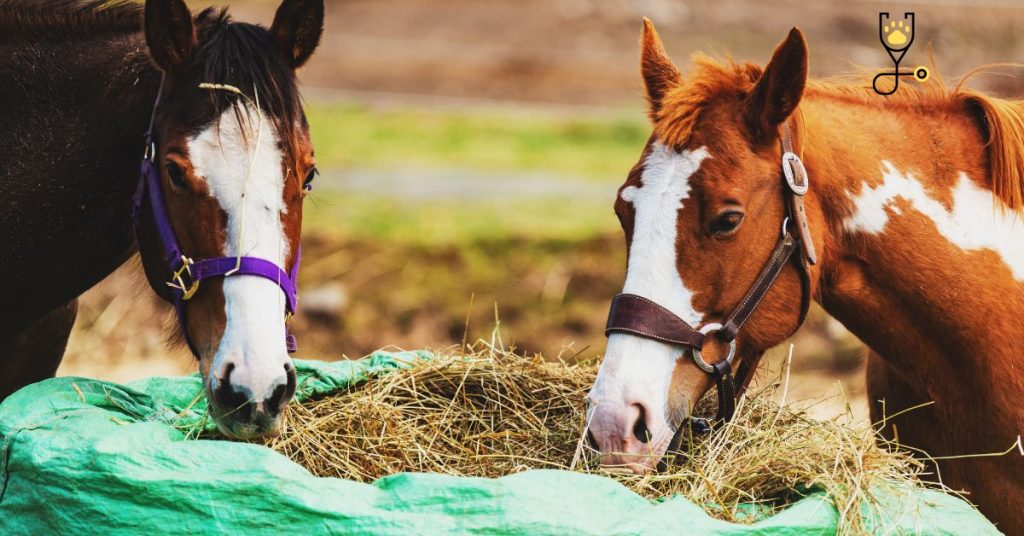
How To Diagnose Hay Belly?
If you think that your horse has a hay belly, there are several things that you can do to help diagnose the condition. The most important thing is to take your horse to the vet for an evaluation. Your vet will be able to feel your horse’s abdomen and determine if there is excess weight gain. They may also recommend a blood test to check for possible causes of the weight gain. If your vet suspects that your horse has a hay belly, they may recommend a course of treatment.
Prognosis For Hay Belly
The prognosis for a hay belly is generally good. With treatment, most horses will be able to return to their normal weight and activity level. However, it is important to keep in mind that the condition can recur if the underlying cause is not addressed. If your horse is overweight, you may need to work with a veterinarian or equine nutritionist to develop a long-term weight-loss plan.
Conclusion
Hay belly is a condition that can be caused by a number of factors, including an excessive intake of hay. If you think that your horse has a hay belly, please contact your veterinarian for further evaluation and treatment. With treatment, most horses will be able to return to their normal weight and activity level. However, it is important to keep in mind that the condition can recur if the underlying cause is not addressed. If your horse is overweight, you may need to work with a veterinarian or equine nutritionist to develop a long-term weight-loss plan.
Frequently Asked Questions
1. What is a hay belly?
A hay belly is a condition that can be caused by a number of factors, including an excessive intake of hay. If you think that your horse has a hay belly, please contact your veterinarian for further evaluation and treatment.
2. What are the causes of a hay belly?
The most common cause of a hay belly is an excessive intake of hay. Other possible causes include grazing on pastures that are too rich in nutrients, lack of exercise, and feeding Haylage instead of hay.
3. How is a hay belly diagnosed?
If you think that your horse has a hay belly, there are several things that you can do to help diagnose the condition. The most important thing is to take your horse to the vet for an evaluation. Your vet will be able to feel your horse’s abdomen and determine if there is excess weight gain. They may also recommend a blood test to check for possible causes of the weight gain. If your vet suspects that your horse has a hay belly, they may recommend a course of treatment.
4. What is the prognosis for a hay belly?
The prognosis for a hay belly is generally good. With treatment, most horses will be able to return to their normal weight and activity level. However, it is important to keep in mind that the condition can recur if the underlying cause is not addressed. If your horse is overweight, you may need to work with a veterinarian or equine nutritionist to develop a long-term weight-loss plan.
5. How can I prevent my horse from getting a hay belly?
The best way to prevent your horse from getting a hay belly is to ensure that they are not overeating. If you think that your horse may be at risk for developing a hay belly, please contact your veterinarian for further evaluation and treatment.
